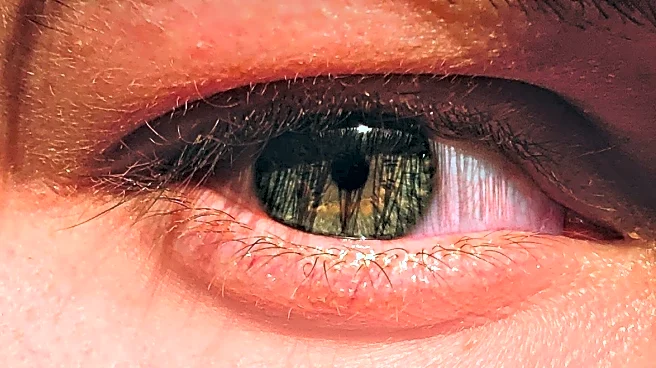What's Happening?
Ketia Moponda, a 19-year-old college student, underwent life-saving amputations of her legs and fingers after mistaking a serious illness for the flu. Initially believing her symptoms were due to freshers' flu, Moponda's condition worsened, leading to her being found unconscious in her dorm room. She was diagnosed with meningococcal septicaemia, a bacterial infection that caused meningitis and sepsis. The infection led to severe complications, including the need for amputations due to lack of blood flow to her extremities. Moponda's story serves as a cautionary tale about the dangers of misdiagnosing serious illnesses.
Why It's Important?
This case highlights the critical importance of early diagnosis and treatment of meningococcal disease, which can have severe and life-altering consequences if not addressed promptly. The story underscores the need for awareness among students and the general public about the symptoms of serious infections that can mimic common illnesses like the flu. It also raises questions about healthcare accessibility and the importance of timely medical intervention. Moponda's experience is a reminder of the potential severity of bacterial infections and the importance of public health education.
What's Next?
Moponda is currently learning to walk again with prosthetic legs and is dedicated to overcoming the barriers associated with disability. Her story may inspire increased awareness campaigns about meningococcal disease and the importance of vaccination and early medical consultation. Healthcare providers and educational institutions might consider implementing more robust health education programs to prevent similar occurrences.
Beyond the Headlines
Moponda's journey also touches on the psychological and emotional challenges faced by individuals who undergo significant physical changes due to medical conditions. Her determination to break barriers of disability and promote self-confidence can serve as an inspiration to others facing similar challenges. This story may also prompt discussions on the support systems available for young people dealing with severe health issues.









